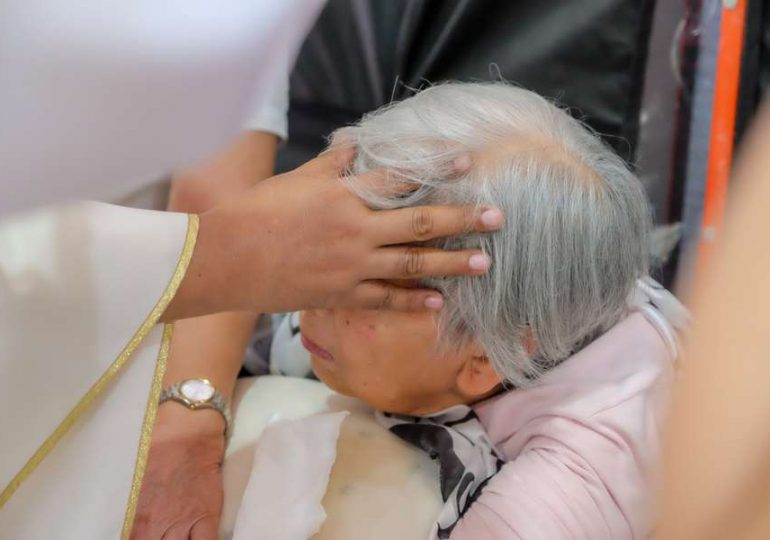The diocese allows nurses to anoint during the sacrament of the sick

A diocese of Massachusetts authorized a modification of the norms for the sacrament of the anointing of the sick, allowing a nurse, rather than a priest, to conduct the physical anointing, which is an essential part of the sacrament.
"I am immediately allowing the assigned Catholic hospital chaplains, standing outside a patient's room or away from their bedside, to dab a cotton ball with holy oil and then allow a nurse to enter the patient's room and administer the oil. If the patient is alert, prayers can be given over the phone, "Bishop Mitchell Rozanski of Springfield, Mass. Told priests in a March 25 message.
"Hospitals need to control access to patients' bedside in order to reduce the transmission of COVID-19 and preserve very limited supplies of masks and other personal protective equipment (PPE)," explained Rozanski, noting that the policy has been developed in consultation with "pastoral services at Mercy Medical and Baystate Medical centers".
The Mercy Medical Center is a Catholic hospital and part of Trinity Health, a Catholic health care system.
The Church teaches that only a priest can validly celebrate the sacrament.
A spokesman for the diocese of Springfield told CNA on March 27 that the authorization reflects diocesan policy "for now". The spokesman said the policy was proposed by the Trinity health system and has also been proposed to other dioceses.
Trinity Health did not respond to CNA questions.
According to the canonical law of the Church, “the anointing of the sick, with which the Church praises the faithful who are dangerously sick from suffering and the glorified Lord to bring them up and save them, is conferred by anointing them with oil and pronouncing the prescribed words in the liturgical books. "
“The celebration of the sacrament includes the following main elements: the 'priests of the Church' - silently - lay hands on the sick; they pray over them in the faith of the Church - this is the epiclesis proper to this sacrament; then they anoint them with oil blessed, if possible, by the bishop, "explains the Catechism of the Catholic Church.
"Only priests (bishops and priests) are ministers of the anointing of the sick," adds the catechism.
The minister of the sacrament, who must be a priest for his valid celebration "is to perform the anointings with his own hand, unless a serious reason guarantees the use of an instrument", according to canon 1000 §2 of the Code of Canon Law.
The Congregation for Divine Worship and the Sacraments spoke of related questions regarding the sacrament of baptism. In a letter published in 2004 by the Canon Law Society of America, Cardinal Francis Arinze, then prefect of the congregation, explained that "if a minister who administers the sacrament of Baptism by infusion pronounces the words of the sacramental form but leaves the payment action water for other people, whoever they are, baptism is invalid. "
Regarding the anointing of the sick, in 2005, the Congregation for the Doctrine of the Faith explained that "over the centuries the Church has identified the essential elements of the Sacrament of the Anointing of the Sick ... a) subject: seriously ill members of the faithful; b) minister: "omnis et solus sacerdos"; c) substance: anointing with blessed oil; d) form: the minister's prayer; e) effects: saving grace, forgiveness of sins, relief of the sick ”.
“The sacrament is not valid if a deacon or lay person tries to administer it. Such an action would be a simulation crime in the administration of a sacrament, to be sanctioned in accordance with can. 1379, CIC, ”added the congregation.
Canon law states that a person who "simulates" a sacrament or celebrates it in an invalid way is subject to ecclesiastical discipline.